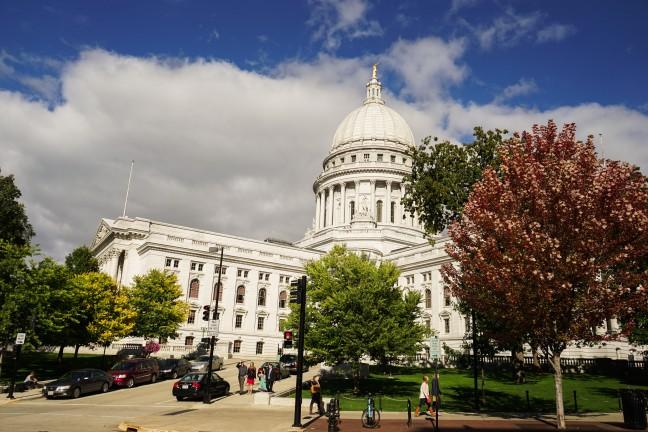Legislators are considering a grant program that would offer financial incentives to out-of-state students who graduate from the University of Wisconsin System or a technical college and stay in Wisconsin after graduation.
The individual must have continuously resided and been employed in Wisconsin for a period of at least two years after graduating, according to the bill. The legislation would create a 10-year pilot program, which would be capped at $15 million.
The bill would allow an individual to receive annual grants for no more than five consecutive years in amounts equal to 10 percent of the difference between the total amount of nonresident tuition the institute charged the individual and the total amount of resident tuition the institution would have charged if the individual had been a resident.
Campus leaders advocate for out-of-state student voting rights
Rep. Dave Murphy, R-Greenville, said in a statement there is an untapped source of workforce talent in Wisconsin’s backyard.
“Our bill gives UW System and Wisconsin Technical College System graduates the ability to ear partial ‘in-state-tuition’ by living, working and paying taxes in Wisconsin for at least two years after graduating,” Murphy said. “This would address our workforce needs quickly, efficiently and potentially at no net cost to the state.”
Michael Welsh, legislative affairs director for the Wisconsin Economic Development Association, said Wisconsin’s worker shortage impacts every industry sector and threatens economic growth statewide.
Welsh said WEDA commends the Legislature on working toward fixing workforce issues and implementing long-term policies to address the state’s workforce shortage. But Welsh added there should be an emphasis on short-term policies.
“Many challenges remain and efforts to attract new workers to Wisconsin in the short-term should be a priority,” Welsh said.
Wisconsin has struggled to attract people for years, Welsh said. Between 2010-17, the state “lost” close to 69,000 residents, causing the state to have a negative migration rate, he added.
But the proposed legislation could be part of a solution to reversing that trend, Welsh said.
“The legislation alone will not solve our workforce challenges, but it would certainly strengthen Wisconsin’s labor force by encouraging talented, young professionals to live and work in Wisconsin after they graduate from college,” Welsh said.
With 100,000 job openings and an aging workforce it’s urgent the state take action to recruit and retain new talent, Murphy said.
UW System, WEDA and Wisconsin Technical College System helped draft the bill and state representatives are working closely with the Department of Workforce Development to work out the details necessary to make the program successful, Murphy said.
Walker’s budget proposal decreases in-state tuition, raises student concerns
Education should be accessible to all, even to those from competing universities, UW System spokesperson Stephanie Marquis said in an email to The Badger Herald.
“The UW System believes all students should have access to a quality education, whether in-state or out-of-state,” Marquis said.
The bill also stated if an individual ceases to live or be employed in Wisconsin, they will no longer be eligible for any additional grants.
The program will be marketed to out-of-state students to draw them into becoming a permanent Wisconsin resident, Murphy said.
“This powerful incentive will encourage many out-of-state graduates to become permanent Wisconsin residents and contributors to our growing economy,” Murphy said.














